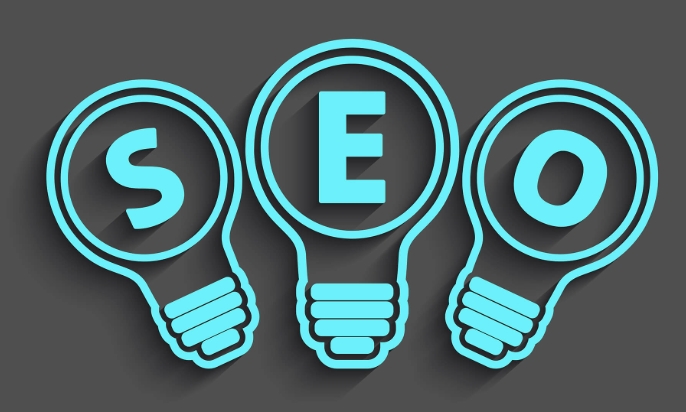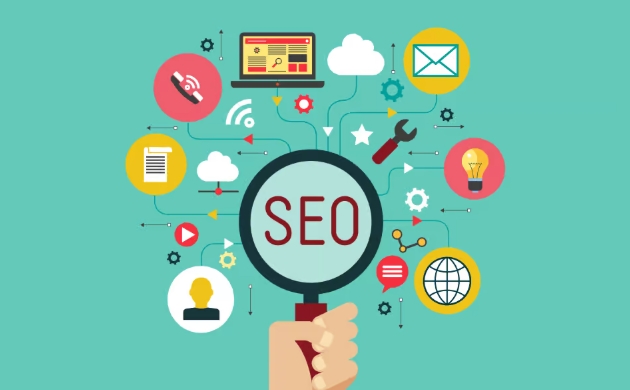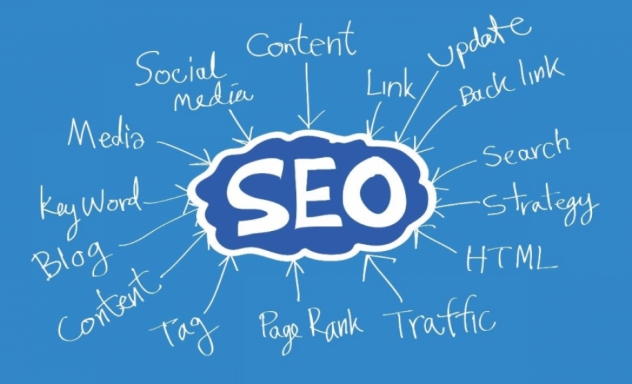SEO and SEM differ in approach, cost, and timing. 1. SEO focuses on organic growth through content, technical improvements, and backlinks, offering long-term, sustainable traffic. 2. SEM involves paid ads for immediate visibility, requiring ongoing budget input. 3. Use SEO for credibility and cost-effective reach over time, and SEM for quick results or testing keywords. 4. Many businesses combine both to balance short-term and long-term goals.

SEO and SEM are both strategies used to improve a website's visibility in search engines, but they work in different ways and serve slightly different goals. Here’s a straightforward breakdown of how they differ and when you might want to use each one.

What SEO Does
SEO (Search Engine Optimization) is all about improving your website so it ranks higher in organic (non-paid) search results. The goal is to make your site more appealing to search engines like Google through content, structure, and technical improvements.

- You optimize pages with relevant keywords people are already searching for
- You build backlinks from reputable websites to boost authority
- You improve site speed, mobile-friendliness, and user experience
This approach takes time—sometimes months—to show results, but once you're ranking well, the traffic tends to be consistent without ongoing ad spend.
How SEM Works Differently
SEM (Search Engine Marketing), on the other hand, usually refers to paid advertising on search engines—like Google Ads. It allows you to bid on keywords and display your ads at the top or bottom of search results.

- You create targeted ads that appear when users search specific terms
- You pay every time someone clicks your ad (pay-per-click or PPC)
- Campaigns can be launched quickly and adjusted on the fly
Because it's paid, you get instant visibility, but once you stop paying, your ads disappear.
When to Use Each Strategy
Depending on your business goals and budget, you might go with one or both:
- Use SEO if you’re looking for long-term growth and cost-effective traffic over time. It’s great for building credibility and reaching users who prefer organic results.
- Use SEM if you need fast results, have a new product, or want to target specific audiences right away. It’s also useful for testing which keywords convert best before investing heavily in SEO.
Some businesses combine both: using SEM to drive immediate traffic while working on SEO for long-term gains.
Key Differences Summary
Here’s a quick side-by-side to help clarify:
- Cost: SEO is generally free (except for labor or agency costs), while SEM requires a budget for ads
- Speed: SEM delivers faster results; SEO takes longer to build up
- Sustainability: SEO traffic can last for months or years after optimization; SEM stops when you pause ads
- Placement: SEM ads appear at the top or bottom as labeled "Ad"; SEO results are below those
So, basically, SEO is a long-term strategy for earning traffic, while SEM is a short-term way to buy it. Depending on your needs, either or both can play a role in your digital marketing plan.
The above is the detailed content of What is the difference between SEO and SEM. For more information, please follow other related articles on the PHP Chinese website!

Hot AI Tools

Undress AI Tool
Undress images for free

Undresser.AI Undress
AI-powered app for creating realistic nude photos

AI Clothes Remover
Online AI tool for removing clothes from photos.

Clothoff.io
AI clothes remover

Video Face Swap
Swap faces in any video effortlessly with our completely free AI face swap tool!

Hot Article

Hot Tools

Notepad++7.3.1
Easy-to-use and free code editor

SublimeText3 Chinese version
Chinese version, very easy to use

Zend Studio 13.0.1
Powerful PHP integrated development environment

Dreamweaver CS6
Visual web development tools

SublimeText3 Mac version
God-level code editing software (SublimeText3)

Hot Topics
 Are we becoming less curious about SEO?
Jul 07, 2025 am 09:12 AM
Are we becoming less curious about SEO?
Jul 07, 2025 am 09:12 AM
I noticed that a strong comment from Google’s VP of Search, Hyung-Jin Kim, at SMX Next in November 2022 has largely gone unnoticed by the SEO community up to now.He stated (my emphasis):“E-A-T is a template for how we rate an individual site. We do i
 What we're seeing a week into the Google March 2024 core and spam updates
Jul 07, 2025 am 09:16 AM
What we're seeing a week into the Google March 2024 core and spam updates
Jul 07, 2025 am 09:16 AM
We are now just about a week into the Google March 2024 core and spam updates, and boy, has it been busy. In that time, we have seen search ranking volatility, some related to the algorithmic updates and some related to Google issuing manual actions
 Bing Deep Search is officially live for all users
Jul 05, 2025 am 09:32 AM
Bing Deep Search is officially live for all users
Jul 05, 2025 am 09:32 AM
Bing Deep Search, an optional generative AI feature designed to assist users with complex questions that lack straightforward answers, is now fully available to all users. Microsoft has announced that the Deep Search function within Bing Search can n
 Is ChatGPT the Google Search killer we've been expecting?
Jul 05, 2025 am 09:14 AM
Is ChatGPT the Google Search killer we've been expecting?
Jul 05, 2025 am 09:14 AM
AltaVista. Lycos. Yahoo. Once upon a time, these were the most popular search engines in the world. Then along came Google. It did Search better. Since around 2002, Google has been the search engine – and its dominance has only grown year after
 Google starts testing AI overviews from SGE in main Google search interface
Jul 05, 2025 am 09:33 AM
Google starts testing AI overviews from SGE in main Google search interface
Jul 05, 2025 am 09:33 AM
Google is currently trialing AI overviews directly within the standard Google Search results, even for users who haven't signed up for the Google Search Generative Experience (SGE) Labs feature. According to a Google spokesperson speaking to Search E
 Mikhail Parakhin, head of Microsoft Bing Search and Microsoft Advertising steps down
Jul 05, 2025 am 09:15 AM
Mikhail Parakhin, head of Microsoft Bing Search and Microsoft Advertising steps down
Jul 05, 2025 am 09:15 AM
Mikhail Parakhin is leaving his position as the head of Bing Search and Microsoft Advertising, potentially moving into a different role within the company. “Mikhail Parakhin, who leads the company’s Bing search engine and advertising divisions, will
 4 keys to SEO and PPC collaboration in 2024
Jul 06, 2025 am 09:27 AM
4 keys to SEO and PPC collaboration in 2024
Jul 06, 2025 am 09:27 AM
Every year brings a ton of change in digital marketing. In each of my 10 years in the industry, I’ve noticed that the beginning of the year can mark a surge in calls for SEO and PPC to work together.The difference in 2024? There’s an elephant in the
 8 steps to maximize success during global site migrations
Jul 04, 2025 am 09:13 AM
8 steps to maximize success during global site migrations
Jul 04, 2025 am 09:13 AM
Migrating a website is a complex undertaking, but when it involves transitioning global sites across multiple markets, the challenges are exponentially greater. This article provides a comprehensive guide to maximizing success with global site mi






